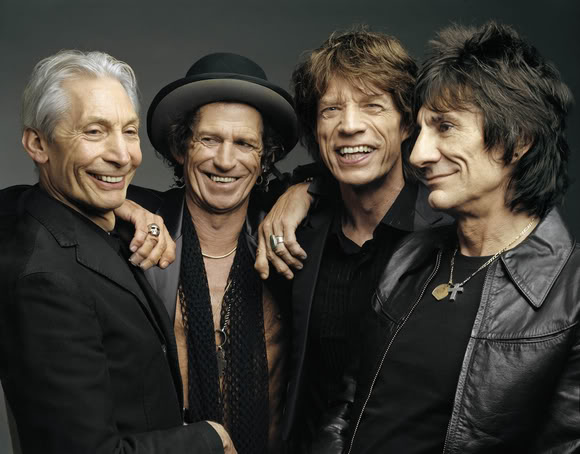
In my post about “Favourite Bands Through Time” I mentioned how I’d discovered the Sex Pistols then had lots of fun raking through the punk compilations albums (which are ten-a-penny, of course, but then most punk bands only had one or two good songs, so most of the music lives on through these hodge-podge collections). I thought then I’d give a flavour of these songs. Everyone still remembers the Sex Pistols and The Clash, and to a lesser extent The Damned, The Jam, and The Stranglers, but are Discharge, Sham 69 and The Adicts as much in the public consciousness? I doubt it. Here, then, are twenty punk songs which I think are tremendous.
1. The Damned – “I Feel Alright”
A cover of The Stooge’s “1970”, this version is swampier and has a far, far more intense outro, the only time a UK punk band ever approximated the Velvet Underground. It simply KICKS ASS.
2. The Adicts – “Chinese Takeaway”
For me punk means total unabashed relish, not cynical negativity. The song exemplifies that!
3. Jilted John – “Jilted John”
Similarly, there are lots of humourous punk songs: “Maniac” by Peter and The Testtube Babies, “Two Pints of Lager and a Packet of Crisps” by Splodgenessabounds, hell even the Buzzcock’s “Orgasm Addict” is great fun. But this novelty hit is all-out wally-ish pisstaking.
4. Stiff Little Fingers – “Alternative Ulster”
The adrenaline and energy of punk is rarely better captured than on this.
5. Public Image Limited – “Public Image”
Though PIL quickly became a post-punk band (best achieved on their second album Metal Box, which I think one of the best albums of the 1980s), this is a genius blast: Keith Levein’s aluminium guitar (to deeply influence The Edge), Jah Wobble’s ocean-deep bass, and Lydon’s outraged nasal shriek.
6. Discharge – “Hear Nothing, See Nothing, Say Nothing”
HEAVY. AS. FUCK.
7. The Boys – “First Time”
I keep having to explain to people that pop-punk was NOT invented by Avril Lavigne or Sum 41 or whatever kiddy music they think it was. From the off, punk had some bands with a melodic aspect to them – the Buzzcocks, for example, Talking Heads, and obviously Blondie. This British group are one of the great lost pop-punk bands.
8. Manic Street Preachers – “It’s So Easy”
This version is actually punkier than the Guns N’ Roses original, and all the better for it. (Not saying it’s better, but amplifying the punky aspect gives it its own character).
9. 999 – “Feelin’ Alright With The Crew”
Don’t know much about them. Love the song though. Punk wasn’t all ra-ra-ra Ramones-on-speed riffing, yer know.
10. Bow Wow Wow – “C30, C60 C90, Go!”
Same with this – tribal drums yeah! It was so depressing to see Malcolm McLaren’s funeral hearse surrounded by rent-a-punk twats in mohawks and leathers. The man was far more diverse than that, as seen by this, his (as it were) comeback band.
11. Talking Heads – “Love –> Building On Fire”
This song could hardly be less punk, which somehow makes it all the more punk. With David Byrne’s falsetto, the fey tone and the absence of CHUGGA-CHUGGA riffs, it somehow still encapsulates the otherness of punk.
12. Big Black – “The Model”
Covering Kraftwerk’s wry tale, Big Black turn the treble up to 11 and everything to 0. True dissonant abrasion. You won’t be surprised that Big Black’s main man, Steve Albini, later produced Nirvana’s In Utero.
13. Sham 69 – “If The Kids Are United”
This song just about exemplifies punk – the military beat, the rousing riff, the veneration of “the kids”, the football-crowd chorus, the raw zest.
14. Siouxsie and the Banshees – Hong Kong Garden
Though Siouxsie quickly shifted to a Ballardian examination of the English (sub)urban darkness, this early classic is just all that’s right about punk.
15. Vice Squad – “Stand Strong, Stand Proud”
Dunno much about this band either, but this is a killer song.
16. X-Ray Spex – “Art-I-Ficial”
Dear Poly Styrene! Her take on consumerism and capitalism crucially expanded the vocabulary of punk – there’s still lots of that stuff in the crusty/grebo subgenres. Adding a saxophone is a bloody simply but killer move too.
17. Joan Jett & The Blackhearts – “I Love Rock And Roll”
I’m sure some smart-arse will comment how JJ isn’t really punk, etc etc. Meh. Punk certainly did encourage a whole lot of women to get up on stage, which (given the homogeneity and blandness of post-millennial rock) can only have been a good thing.
18. The Saints – “Stranded”
Australia produced some pretty kickin’ punk bands, and this song is one of the best to come from there.
19. The Exploited – “Dead Cities”
I’m not keen on hardcore (for which read: simplify to absurd levels) punk, but this song has got an amazing riff which just never stops driving. Can you believe this was actually on Top Of The Pops? Different days!
20. Undertones – “Teenage Kicks”
OK, everyone knows (or SHOULD know) this one, but it can’t be denied! 2.27 of perfection.

